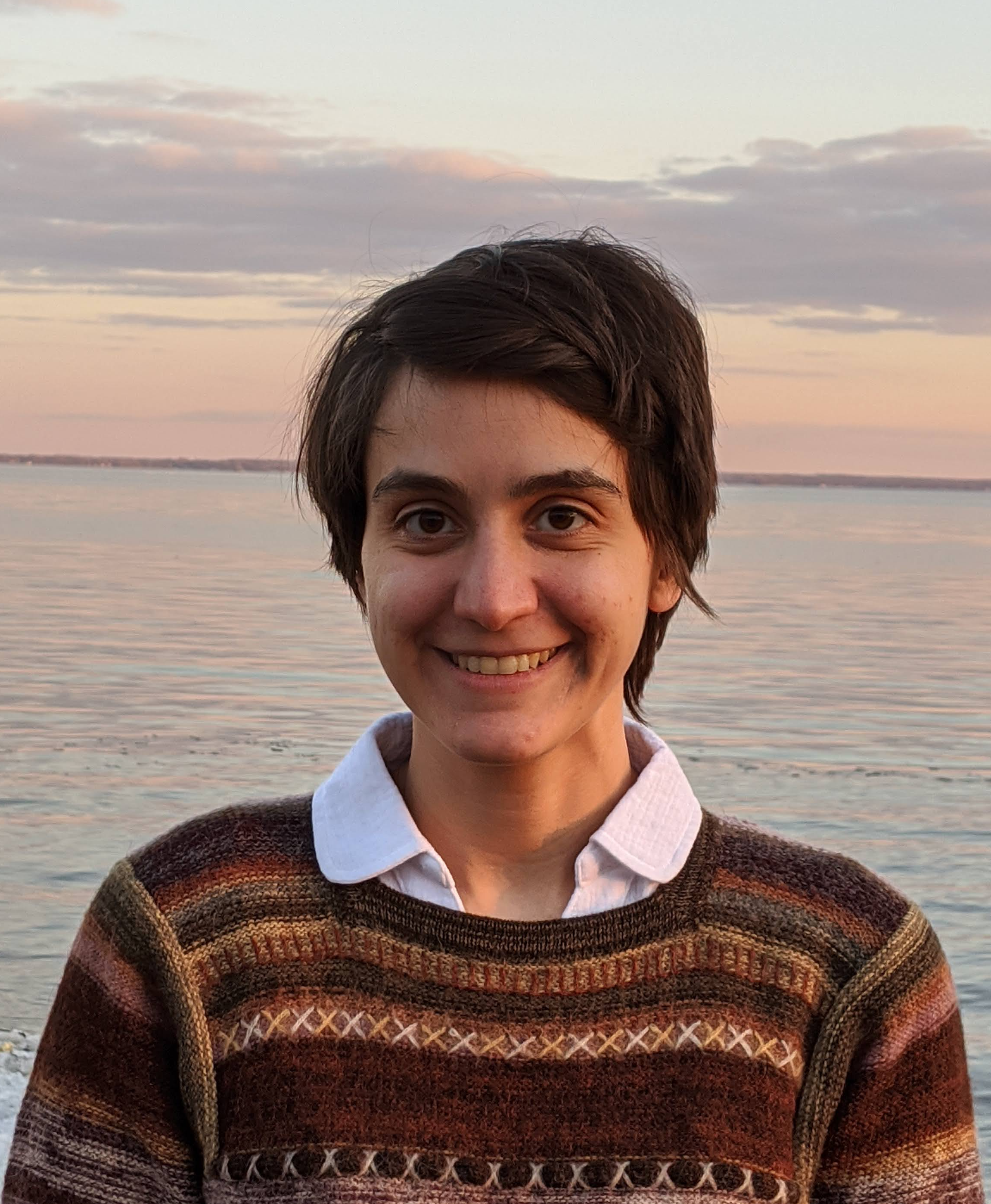Science/Fiction
Doctoral candidate in English Aylin Malcolm’s class shows that when it comes to science, communication matters.
“When times get bad,” says Aylin Malcolm, “the medieval world seems more relevant than ever.”
As the world weathers the COVID-19 pandemic, talk has turned to the plague, a distinctly medieval threat. This is no surprise to Malcolm. “The humanities—history, literature, art—gives us examples to look to, for good or bad,” they say. “There’s the plague, the use of zombie movies as a metaphor, and even the emergence of virtual book clubs and an emphasis on reading. I have a scientific background but I’ve always been drawn to the value of the arts in times of crisis.”
Malcolm, a doctoral candidate in English and a fellow at the Penn Program in Environmental Humanities, studies medieval literature and how natural science was communicated and represented before the Scientific Revolution. The intersection of science and literature became apparent when they were an undergraduate at McGill University majoring in environmental science. Taking an English class as an elective, they noticed that ideas of networks and holistic approaches, integral to understanding the environment in the 21st century, were also important to medieval writers.
This semester, Malcolm is teaching a junior research seminar that shows students just how intertwined the threads of science and literature are. The course, Science/Fiction, covers poetry and literature from the 12th century to today, with a particular emphasis on three moments of scientific controversy: observation in the 12th and 13th centuries, astronomy in the 16th and 17th centuries, and evolution in the 19th century.
Malcolm’s syllabus makes the case for evolving definitions of science and legitimate knowledge that reflect societal biases. Readings include texts such as The Blazing World, a 1666 work of science fiction written by Margaret Cavendish. Cavendish, a British aristocrat who immersed herself in the male-dominated world of science, philosophy, and fiction, was largely dismissed as an eccentric in her time, but has been reconsidered in recent years.
The syllabus also includes contemporary writers like Rebecca Roanhorse, Ted Chiang, and S. Qiouyi Lu, whose work expands the canon of science fiction and adds perspectives missing from Western or Eurocentric traditions.
“We often think of science as objective and literature as subjective,” Malcolm explains. “But, as we’re seeing in our news every day, science is done by humans with all their interests and shortcomings. And just as important as scientific findings is how those findings are communicated.”
The COVID-19 crisis has led Malcolm to make changes to the course. Classes will be held on Zoom (a video conferencing program), and will meet at the regular time so students can gather together and maintain what Malcolm calls the “lively community” that is the Department of English.
Malcolm is considering adding COVID-19 readings to the syllabus. “It could be worthwhile to analyze articles written days apart, because we can see how scientific communication is evolving in real time,” they say. “But sometimes we all need a break from the news. It will be something I talk about with students.”
The biggest change will be to how students conduct research now that they don’t have access to the physical library.
“I encourage students to visit the library because a lot of material isn’t available digitally” Malcolm explains. “And for me, the library offers the real pleasure of research—the sense of being a detective in the stacks.”
Malcom is working with the library staff, who they call “enormously helpful,” to make sure students can continue their research.
“There is a lot of fear and anxiety right now,” Malcolm says. “Continuing the work I care about gives me a sense of normalcy. I want to say to students that even in a time like this, the work of the humanities is valuable.”



